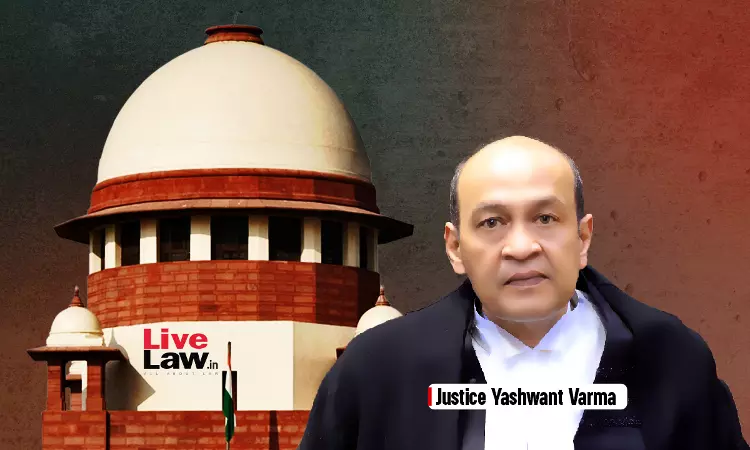CJI Assures Listing Of Petition Seeking FIR Against Justice Yashwant Varma Over Cash Stash Row
Anmol Kaur Bawa
26 March 2025 11:21 AM IST

Next Story
26 March 2025 11:21 AM IST
The petition filed in the Supreme Court, seeking the registration of FIR against Justice Yashwant Varma, Judge of the Delhi High Court, over the alleged discovery of illicit cash at his official premises, was mentioned before the Chief Justice of India today for urgent hearing.Advocate Mathews J Nedumpara, the main petitioner, mentioned the matter before CJI Sanjiv Khanna.At the outset, the...
